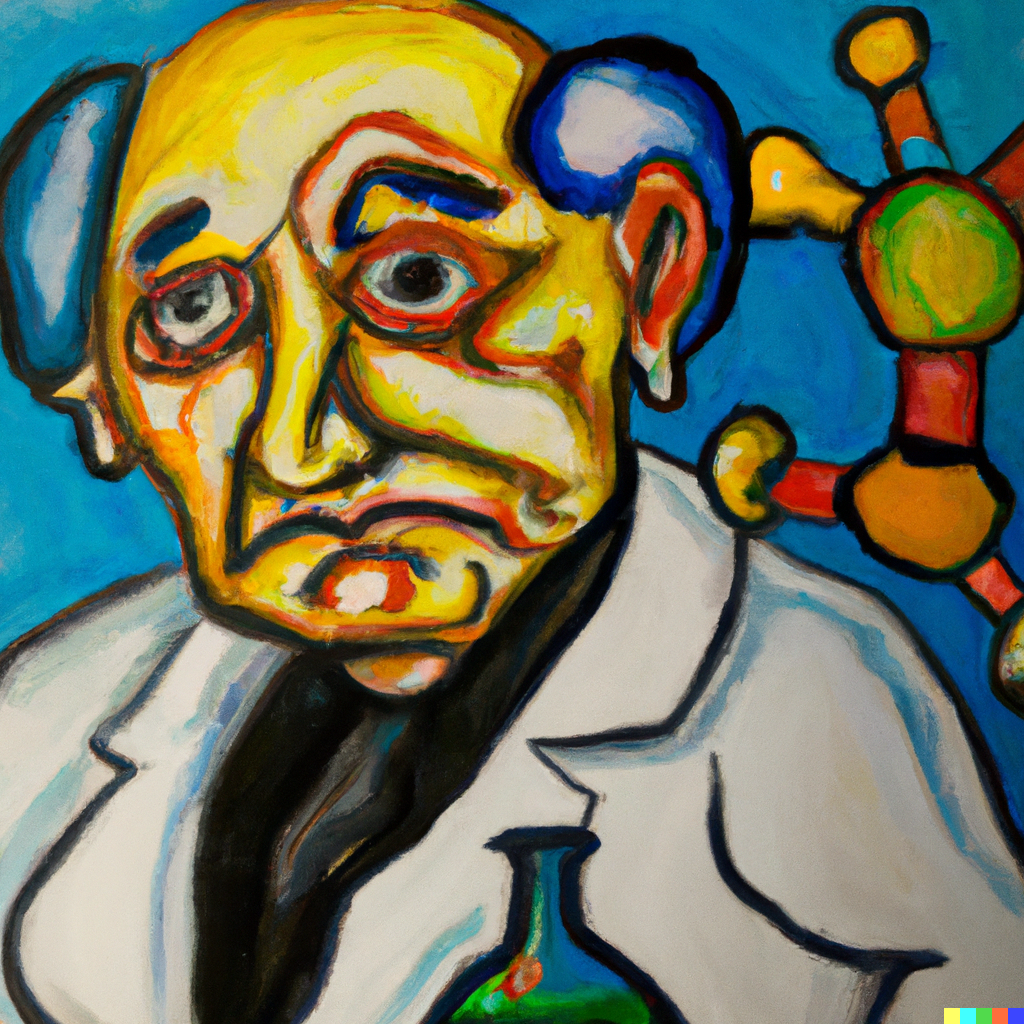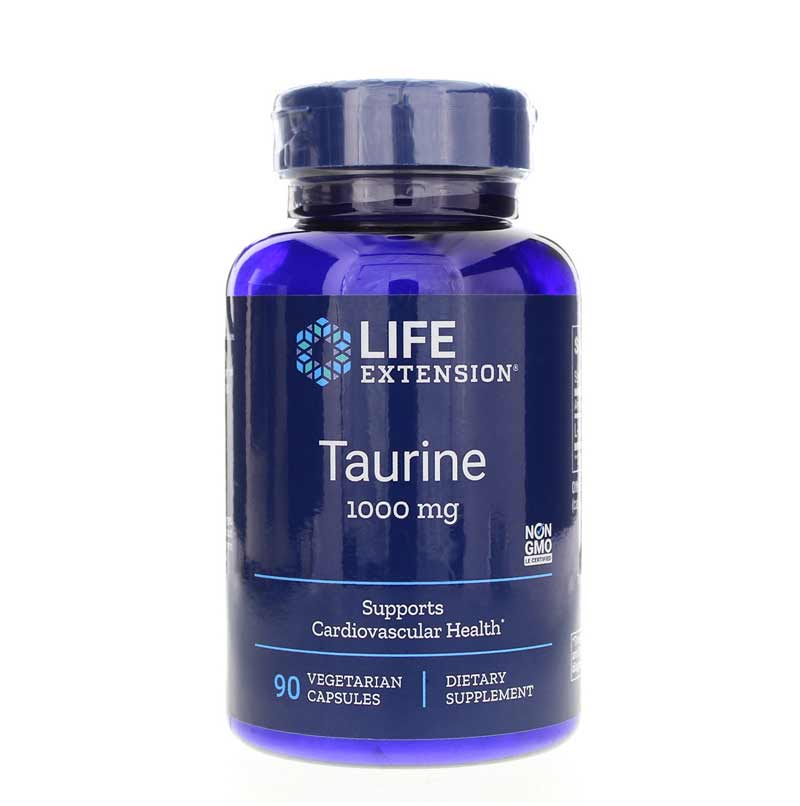What’s the Deal with Taurine and Longevity?

Getting old is tough. As a result, a trillion-dollar industry serves us countless products that tell us we can look or feel or be younger. Influencers rake in billions every year, promoting one product or another. Scammy stem cell clinics have also popped up to get in on the action. Now a new dietary supplement has entered the fray called taurine. Is this for real? Will I be taking taurine? Let’s dig in.
Medications and Supplements to Make You Younger
I will be 60 this September. There’s nothing like approaching that milestone to make you interested in anything that promises to make you younger or healthier, or look better. That’s why longevity in all of its facets and markets is likely a trillion-dollar industry. There are supplements, cosmetics, cosmetic dermatology, cosmetic surgery, medications, anti-aging medicine, devices, etc…
Let’s start with my anti-aging regimen. I have studied the research in this space now for years, and here’s what I currently do because I have either seen personal results or the published data was “good enough”:
- Bioidentical hormone replacement-Monitored, and blood test level adjusted testosterone.
- Sermorelin-This HGH promoter peptide has made a big difference in my body composition.
- Exercise-Lifting heavy weights three times a week and ensuring I get some sort of cardio 6-7 times a week.
- Low Glycemic Eating with a Focus on Plant Proteins-This is my daily plant protein shake in the morning, plus staying as much as possible away from high sugar content foods. For example, I view days since I have had a cupcake, piece of cake, or orange juice, like construction sites view days since an accident.
- Metformin-This was a natural choice for me as this blood sugar stabilizer turned anti-aging pill helps to combat my genetic predilection toward blood sugar instability.
- Fisetin-This senolytic has enough data behind it for me to get on the train.
- Orthobiologics-I get injected in various old age problem areas at least twice a year. The goal is to keep my parts and pieces as healthy as possible to keep my activity levels high.
As you can see, I’m already trying several things to stay active longer and hopefully feel a little younger. Why did taurine catch my eye?
What’s the Deal with Taurine?
I noticed taurine a few weeks ago when the study came out showing that taurine had anti-aging effects. This caught my attention not because it wasn’t yet another media cycle promoting something without solid science to get monetized eyeballs but was actually tested in primates. Many drugs and treatments tested in lower animal models often fail in humans, but those tested in primates have a much lower failure rate. Meaning our simian cousins are much closer to our physiology, so what works in them is likely to work in us.
That one factoid caused me to look up the source paper, and I have to say I was impressed. This isn’t just an experiment and a report, but a series of experiments at various levels of detail showing that taurine may be the real deal and promote antiaging. Hence, I wanted to take some time to dive deeply into taurine and decide whether to add it to my own anti-aging regimen.
The Recent Study
The study, published in the journal Science and conducted by dozens of aging researchers worldwide, involved several studies on animals and humans (1). The researchers first looked at taurine levels in the blood of mice, monkeys, and people and found that levels decrease with age. In humans, for example, the taurine levels in 60-year-olds are about a third of those in 5-year-olds. The researchers then took 14-month-old mice (which are about 45 years old in people years) and fed them either a bolus of taurine or a control solution daily. They discovered that the female mice given taurine had a 12% longer lifespan, and the male mice had a lifespan that increased by 10%. Other experiments on mice found that older animals that took taurine for a year were healthier in nearly every way than those who didn’t take the supplement. There were similar results in middle-aged rhesus monkeys that were given taurine supplements every day for six months. The nutrient prevented weight gain, reduced fasting blood glucose and markers of liver damage, increased bone density in the spine and legs, and improved the health of their immune systems.
Since this is only a single study, albeit a very big one, what else do we know about taurine?
Taurine Research in Humans
A double-blind study was conducted with 24 elderly women who took 1.5g a day of taurine or a placebo for 16 weeks (2). Superoxide dismutase (SOD, antioxidant enzyme) plasma levels were increased in the taurine group. Malondialdehyde levels increased only in the taurine-supplemented participants. The researchers concluded that taurine reduces the oxidative stress associated with aging.
Why Taurine?
As noted in the new study, researchers have known for some time that taurine levels decline as we age. However, what’s the theory about why this is a problem?
We know that taurine does the following (3):
- Anti-oxidation and anti-inflammation
- Improves energy metabolism
- Changes gene expression to improve the effects of aging
- Improves protein folding
- Protects the central nervous system
- Protects heart cells
The Red Bull Effect
A recent study may have also confirmed what Red Bull drinkers and body builders have known for years. For example, bodybuilders have used taurine to improve the intensity of their workouts and speed muscle recovery, and the research that supported this concept was pretty good, with some holes as of 2021 (4). In a recent randomized placebo-controlled trial, elite boxers performed better in agility, cognitive function, and balance when consuming caffeine and taurine (5).
Will I Take Taurine, and If So, How Much?
When do you pull the trigger to add yet another supplement to your anti-aging regimen? For me, there must be at least primate and some human evidence that the substance works. In addition, the stuff should be otherwise safe, meaning adding a prescription cancer drug to my regimen based on this type of evidence isn’t going to happen, but a dietary supplement is more likely to make the list. Hence, based on what I reviewed, I did decide to add taurine based on the available research.
How much to take is a HUGE question for this one. The new study fed primates a large amount of taurine at 250 mg/kg of body weight. For a 100 kg man, that’s 25 g of the stuff daily. That’s possible, but since taurine is commonly sold as a dietary supplement in 1g pills, that’s a new 90-day supply every three days. If you wanted to consume it at those super high doses, you would need to buy a box of taurine powder, which can be had for about $22 for 500 grams which would be a 20-day supply. 5 kg can be had for $56, which would last for more than six months. These are very high doses that I haven’t seen studied in humans.
However, other studies have used far less. Most of the existing research used 1-3 grams daily, which is the amount most bodybuilders use. Hence, this is what I bought (I get no money from this company):

I take three of these every morning with my usual matcha shake.
The upshot? Taurine may be the real deal, so I’ve added it to my daily routine. I’ll also move “Red Bull” from something crazy party people drink into another category now that we know that the effects of that cocktail could be real. In the meantime, I’m sure the sales of taurine supplements have climbed big time since the early release of that new study in early June, so buy it while it lasts!
________________________________________________________________________
References:
- Parminder Singh, Kishore Gollapalli, Stefano Mangiola, Daniela Schranner, Mohd Aslam Yusuf, Manish Chamoli, Sting L. Shi, Bruno Lopes Bastos, Tripti Nair, Annett Riermeier, Elena M. Vayndorf, Judy Z. Wu, Aishwarya Nilakhe, Christina Q. Nguyen, Michael Muir, Michael G. Kiflezghi, Anna Foulger, Alex Junker, Jack Devine, Kunal Sharan, Shankar J. Chinta, Swati Rajput, Anand Rane, Philipp Baumert, Martin Schönfelder, Francescopaolo Iavarone, Giorgia di Lorenzo, Swati Kumari, Alka Gupta, Rajesh Sarkar, Costerwell Khyriem, Amanpreet S. Chawla, Ankur Sharma, Nazan Sarper, Naibedya Chattopadhyay, Bichitra K. Biswal, Carmine Settembre, Perumal Nagarajan, Kimara L. Targoff, Martin Picard, Sarika Gupta, Vidya Velagapudi, Anthony T. Papenfuss, Alaattin Kaya, Miguel Godinho Ferreira, Brian K. Kennedy, Julie K. Andersen, Gordon J. Lithgow, Abdullah Mahmood Ali, Arnab Mukhopadhyay, Aarno Palotie, Gabi Kastenmüller, Matt Kaeberlein, Henning Wackerhage, Bhupinder Pal, Vijay K. Yadav. Taurine deficiency as a driver of aging. Science, 2023; 380 (6649) DOI: 10.1126/science.abn9257
- Abud GF, De Carvalho FG, Batitucci G, Travieso SG, Bueno Junior CR, Barbosa Junior F, Marchini JS, de Freitas EC. Taurine as a possible antiaging therapy: A controlled clinical trial on taurine antioxidant activity in women ages 55 to 70. Nutrition. 2022 Sep;101:111706. doi: 10.1016/j.nut.2022.111706. Epub 2022 Apr 22. PMID: 35700594.
- Schaffer S, Kim HW. Effects and Mechanisms of Taurine as a Therapeutic Agent. Biomol Ther (Seoul). 2018 May 1;26(3):225-241. doi: 10.4062/biomolther.2017.251. PMID: 29631391; PMCID: PMC5933890.
- Kurtz JA, VanDusseldorp TA, Doyle JA, Otis JS. Taurine in sports and exercise. J Int Soc Sports Nutr. 2021 May 26;18(1):39. doi: 10.1186/s12970-021-00438-0. PMID: 34039357; PMCID: PMC8152067.
- Ozan M, Buzdagli Y, Eyipinar CD, Baygutalp NK, Yüce N, Oget F, Kan E, Baygutalp F. Does Single or Combined Caffeine and Taurine Supplementation Improve Athletic and Cognitive Performance without Affecting Fatigue Level in Elite Boxers? A Double-Blind, Placebo-Controlled Study. Nutrients. 2022; 14(20):4399. https://doi.org/10.3390/nu14204399

NOTE: This blog post provides general information to help the reader better understand regenerative medicine, musculoskeletal health, and related subjects. All content provided in this blog, website, or any linked materials, including text, graphics, images, patient profiles, outcomes, and information, are not intended and should not be considered or used as a substitute for medical advice, diagnosis, or treatment. Please always consult with a professional and certified healthcare provider to discuss if a treatment is right for you.
